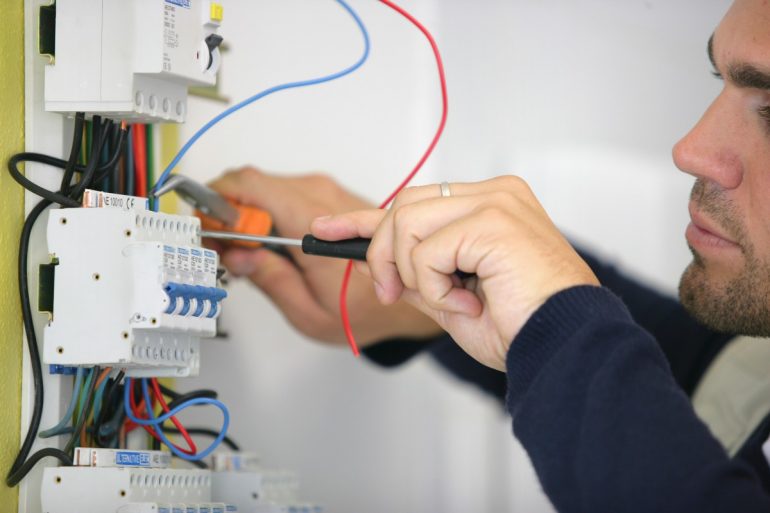Rewiring
Rewiring a property requires time, training and skill. It is definitely not a job for an amateur or a ‘cowboy’ contractor.
Since 2005, UK law has required all homeowners to employ a Part P registered electrician to carry out important domestic work. If property owners fail to do this, they will inevitably run into problems when they try to sell the property. In the meantime, the wiring could be unsafe, risking shocks or fire.
With such a large job comes a responsibility to get it right. Twick Electrics ensures all rewiring jobs comply with Part P documentation relating to the safety of your home electrics.
Once the work is complete, Twick Electrics will ensure that the relevant authorities are notified and the rewiring can be checked. The rewiring will be covered by a six year guarantee.
Do I need an electrical rewire?
However, we do have a few things for you to consider if you are trying to work out whether you should have your property rewired;
• Have your lights stopped working properly or stopped working altogether?
• Do you constantly have to change fuses?
• Has your home ever been flooded?
• Has the rubber encasing your electrical wires deteriorated since it was installed?
If you answered yes to any of these questions then we recommend you get in touch with us to arrange your free electrical inspection.
How old is the existing wiring in my house?
Cables in black rubber were phased during the 1960s.
Cables in lead or fabric were installed before the 1960s.
Any fusebox with a wooden backing, iron switches, or a mixture of fuse boxes was installed before the 1960s.
Round pin electrical sockets, round light switches, braided flex hanging down from a ceiling rose, brown or black switches and sockets on skirting boards all date back to before the 1960s.
Wall-mounted light switches inside bathrooms are from before the 1960s.
Aluminium wire was used rather than copper, which is likely to catch fire more easily
There was no earth cable in houses before the early 80s and this means you’re more likely to have electrical shocks. The whole point of an earth wire is to get rid of access to electricity so you can avoid getting electrocuted – without this your house is an accident waiting to happen.
If you believe your property has not been rewired for 25 years or more then we stronly recommend you have a rewiring carried out. You can arrange a free electrical inspection from Twick Electrics to have your property assessed.
What do I need to do before the rewiring process gets underway?
First of all you will need to decide what fixtures you would like to be moved, changed or removed. Coming to a concrete decision on this is important as changing your mind once the process is underway can lead to additional costs. Take the time to sit down, consider your requirements and the options available to you before reaching a conclusion, we’re happy to talk this through with you.
Packing up your belongings to keep them safe during the rewiring process is also important. Whilst we do work hard to minimise dust and mess and clean up after ourselves, there will be a significant amount of dust created during the rewiring process.

— Customer in Twickenham
Efficient service kept informed at all times definitely recommend to friends and family. Good local company.
-Customer in Richmond
Fast turnaround from estimate to completion, excellent install team and faultless work for the agreed price. Can’t recommend this company highly enough.
-Customer in London
Engineer was on time , very friendly and polite, work was carried out in a efficient and orderly way, the area was left in a tidy state. I would definitely recommend this company.
